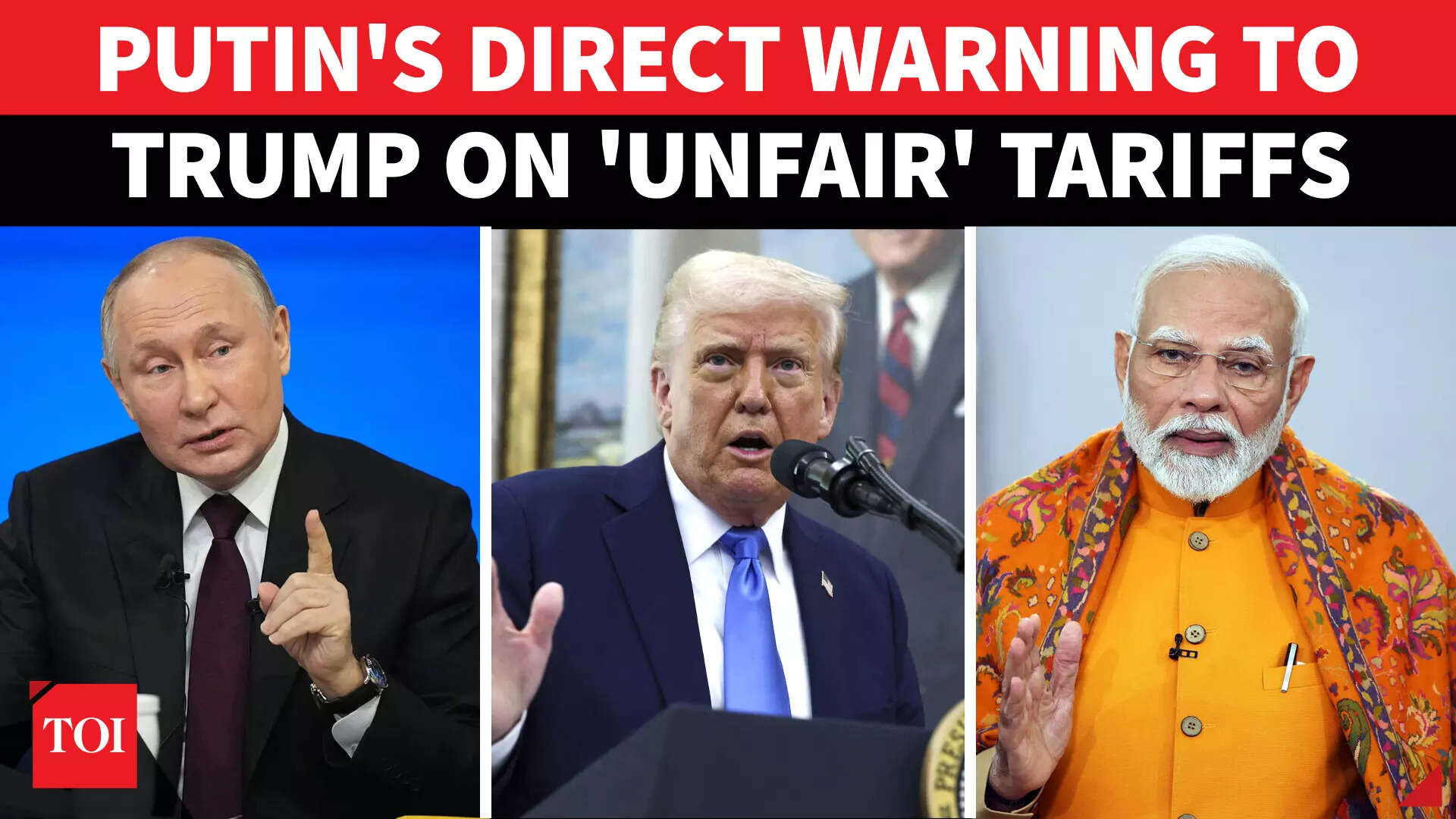Politics
Russia Criticizes U.S. Sanctions Ahead of China Summit

As Russian President Vladimir Putin prepares for the upcoming SCO Summit in China, Russia has publicly condemned the United States for its recent sanctions and tariffs. In a statement, Maria Zakharova, spokesperson for the Russian Foreign Ministry, described the U.S. actions as “discriminatory” and cautioned that they could have significant long-term global ramifications.
The remarks from Zakharova come in response to tariffs imposed by former President Donald Trump, which she claims threaten to destabilize international economic relations. Russia’s criticism reflects a growing sentiment among various nations that the United States is wielding economic power as a form of coercion.
BRICS Nations Seek Alternatives
Meanwhile, the member countries of the BRICS bloc—comprising Brazil, Russia, India, China, and South Africa—are advocating for a new financial framework that would reduce dependency on the U.S. dollar. The bloc aims to create a more balanced global financial environment, challenging what they perceive as U.S. hegemony in economic matters.
Zakharova’s comments underline a broader push among BRICS nations to establish an alternative financial order. During the SCO Summit, discussions are expected to center around cooperative measures to counteract U.S. economic practices that are viewed as detrimental to international trade.
The criticism from Russia arrives at a pivotal moment, as tensions between the U.S. and various countries continue to escalate. The Russian Foreign Ministry has warned that ongoing economic sanctions could lead to a fragmentation of the global economy, creating divisions that could hinder collaborative efforts on international issues.
Global Implications of U.S. Policy
The implications of U.S. sanctions extend beyond the immediate economic impact. Countries affected by these measures may seek to realign their trade relationships, potentially decreasing reliance on the U.S. market. This shift could lead to a more multipolar world where economic power is distributed among several nations rather than concentrated in the United States.
Zakharova’s statements serve as a reminder that international relations are increasingly influenced by economic strategies. As nations navigate these complexities, the potential for new alliances and cooperative ventures may reshape the global landscape.
In summary, Russia’s strong denunciation of U.S. tariffs reflects deeper economic and political currents that are likely to influence discussions at the upcoming SCO Summit. As BRICS nations continue to explore alternatives to U.S. economic dominance, the global economy may be on the brink of a significant transformation.
-

 World5 months ago
World5 months agoSBI Announces QIP Floor Price at ₹811.05 Per Share
-

 Lifestyle5 months ago
Lifestyle5 months agoCept Unveils ₹3.1 Crore Urban Mobility Plan for Sustainable Growth
-

 Science4 months ago
Science4 months agoNew Blood Group Discovered in South Indian Woman at Rotary Centre
-

 World5 months ago
World5 months agoTorrential Rains Cause Flash Flooding in New York and New Jersey
-

 Top Stories5 months ago
Top Stories5 months agoKonkani Cultural Organisation to Host Pearl Jubilee in Abu Dhabi
-

 Sports4 months ago
Sports4 months agoBroad Advocates for Bowling Change Ahead of Final Test Against India
-

 Science5 months ago
Science5 months agoNothing Headphone 1 Review: A Bold Contender in Audio Design
-

 Top Stories5 months ago
Top Stories5 months agoAir India Crash Investigation Highlights Boeing Fuel Switch Concerns
-

 Business5 months ago
Business5 months agoIndian Stock Market Rebounds: Sensex and Nifty Rise After Four-Day Decline
-

 Sports4 months ago
Sports4 months agoCristian Totti Retires at 19: Pressure of Fame Takes Toll
-

 Politics5 months ago
Politics5 months agoAbandoned Doberman Finds New Home After Journey to Prague
-

 Top Stories5 months ago
Top Stories5 months agoPatna Bank Manager Abhishek Varun Found Dead in Well









